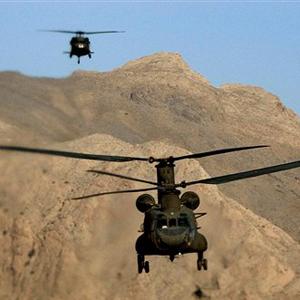Lack of communication and mistrust behind NATO attack: US
Friday, December 23rd, 2011 5:48:51 by Ammar Ahmad
Lack of communication and mistrust behind NATO attack: US
US Air Force Special Operations Command’s Brigadier General and investigating officer into the NATO airstrike Stephen Clark said lack of trust and series of miscommunications contributed to the NATO attack on November 26, that killed 24 Pakistani soldiers.
While briefing reporters at the Pentagon via phone, Clark said that Nato failed to give precise information to Pakistan about its positions during the operation because of general mistrust as it is believed that earlier ISAF operations were compromised when
Pakistan was told the exact locations of the US forces.
Clark, however, added that even Pakistan was reluctant about giving specific details related to the location of its check posts.
Outlining the events of November 25 and 26, Clark said that the operation, which was to be conducted by nearly 120 personnel, was intended to remain within the Afghanistan border, and that the US forces were unaware of the presence of Pakistani military
there. He said that when the US forces came under attack, there was a lot of confusion from both sides.
According to the Air Force commander, the ground force officers had been told that there were no Pakistani military in the area, but that they were also re-checking.
However, on the ground the officer only heard that there was “no Pakistani military.”
“This is the first point where we found a series of miscommunications to have occurred. That was the first point of failure which might have potentially stopped this engagement,” Clark said.
Describing the events of the night, the commander said, “The US forces believed that it was insurgents firing at them from the higher ridge.”
He added that the US forces ceased engagement after they were told that there were border posts in the area.
“No rounds were fired after that information was given,” he added.
In response to a question, he said that when the US forces came under attack, it was very specific fire and it seemed as if the assailants were wearing night vision goggles.
However, Clark also did not know of the name of the border post “Boulder” established by Pakistan, which also raised questions during the briefing.
Clark said that the investigation was conducted principally out of Bagram, with visits to the Nawa border coordination centre and Kabul. Sixty interviews, said General Clark, were conducted for the purpose of this investigation.
In response to a question, the Air Force commander said that the lack of Pakistani participation in this investigation was regrettable, and is a significant and important part missing from this report.
Pentagon Press Secretary George Little also told reporters that US Chairman Joint Chiefs of Staff General Dempsey and General Mattis have called General Kayani. “We are going to share our findings with the Government of Pakistan.”
Tags: Afghanistan, Haqqani, Pakistan ArmyShort URL: https://www.newspakistan.pk/?p=7049

















